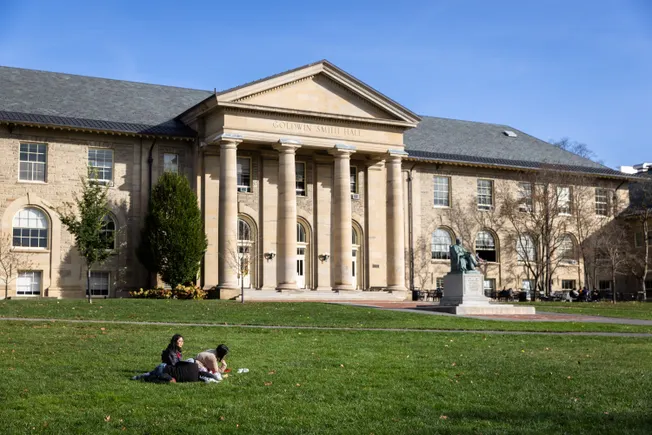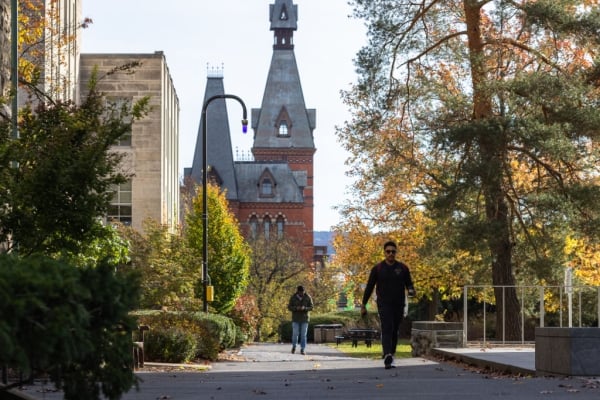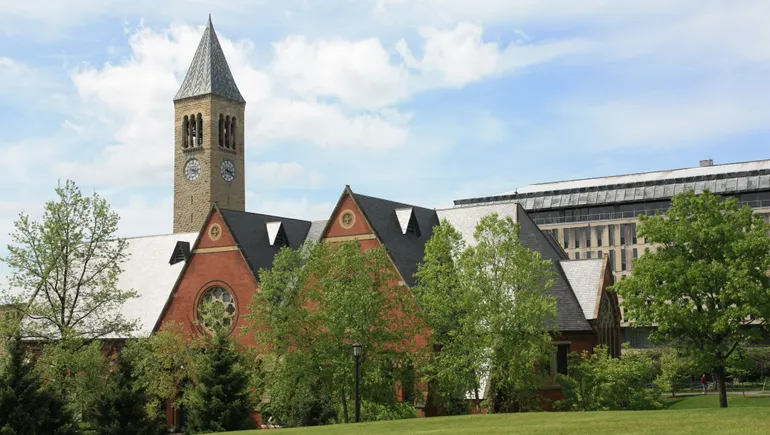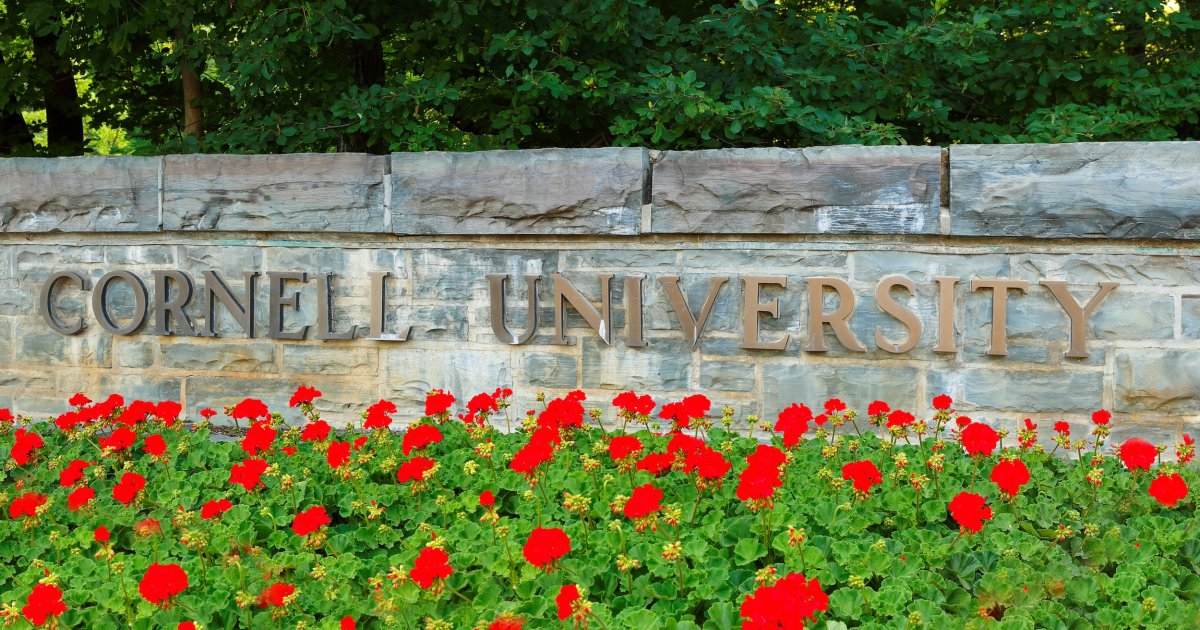Dive Brief:
- Cornell University on Friday struck a deal with the Trump administration, agreeing to pay $60 million and adhere to strict reporting conditions in exchange for having more than $250 million in federal funding reinstated.
- In addition to the financial payments, the Ivy League institution will submit expanded undergraduate admissions data to the federal government, and include the U.S. Department of Justice’s July guidance against diversity, equity and inclusion efforts as “a training resource” for employees. Cornell’s president will provide regular compliance reports to the administration.
- In turn, three federal agencies — the DOJ and U.S. departments of Education and Health and Human Services — agreed to close their civil rights investigations into the New York university. Cornell is the fifth university to publicly strike a deal with the Trump administration to restore federal funding.
Dive Insight:
Cornell President Michael Kotlikoff on Friday said the deal reverses costly federal funding cuts that caused significant disruption to the university.
“The months of stop-work orders, grant terminations, and funding freezes have stalled cutting-edge research, upended lives and careers, and threatened the future of academic programs at Cornell,” he said in a statement.
Under the deal, Cornell will pay the federal government $30 million over three years.
It will pay an additional $30 million over the same period toward agriculture research programs that “directly benefit U.S. farmers through lower costs of production and enhanced efficiency.” Both the agreement and Kotlikoff’s statement emphasized Cornell’s history as a land-grant university.
Kotlikoff noted that the bargain does not require Cornell to admit wrongdoing, and he said it does not turn over the university’s academic freedoms to the federal government.
As part of the deal, the university will report additional admissions data to the Education Department. Once a quarter through 2028, the university will submit undergraduate admissions disaggregated by students’ race, GPA, performance on standardized tests, and major. Much of the criteria align with a Trump administration proposal to dramatically expand the type of admissions data colleges must report.
The university will also use the DOJ’s wide-ranging anti-DEI guidance as a training resource for faculty and staff. The document labels race-based scholarships and student resources dedicated to specific racial or ethnic groups as illegal and warns colleges they could lose federal grant funding over such practices.
Colleges could similarly lose funding if the DOJ decides they are using “facially neutral” criteria as proxies for federally protected characteristics, such as asking job applicants to demonstrate “cultural competence” as a means of assessing someone’s racial or ethnic background.
The U.S. Department of Education released a similar document in February threatening federal funding over DEI practices. At the time, Kotlikoff called diversity a driver of Cornell’s excellence. The Education Department’s guidance has since been struck down as unconstitutional in federal court.
On Friday, Cornell said it will continue to conduct an annual campus climate survey, including on the experience of students with shared Jewish ancestry. Questions will include whether students feel welcome on campus and safe to report antisemitism.
Kotlikoff agreed to provide the Trump administration with quarterly reports demonstrating Cornell’s compliance.
Cornell’s agreement shares some elements with that signed by the University of Virginia last month. The public flagship similarly agreed to comply with the DOJ’s anti-DEI guidance and provide quarterly compliance reports to the Trump administration.
And like Brown University, Cornell agreed to pay money into a cause seemingly unrelated to the charges the Trump administration levied against it — in Brown’s case, $50 million to workforce development organizations in Rhode Island.
“Today’s deal is a positive outcome that illustrates the value of universities working with this administration,” Attorney General Pamela Bondi said in a Friday statement.
U.S. Secretary of Education Linda McMahon said the Cornell deal is an example of the Trump administration forcing colleges to refocus “their attention on merit, rigor, and truth seeking — not ideology.”
Kotlikoff instead called the deal a reaffirmation of “principles to which we have already independently and publicly committed” and noted that the university already conducts annual campus climate surveys.
Cornell, he said, “looks forward to resuming the long and fruitful partnership with the federal government.”






